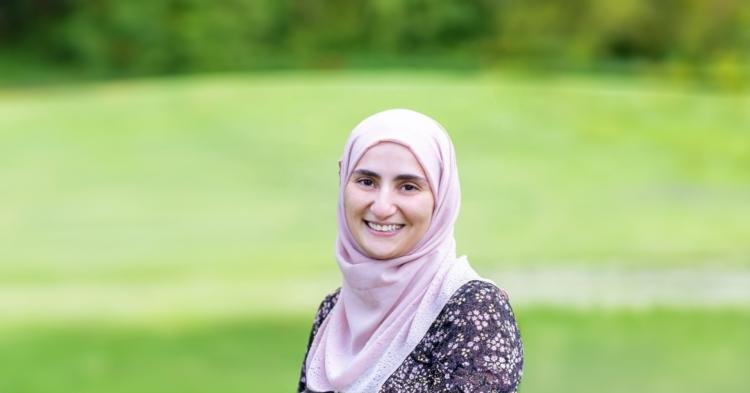For Western PhD candidate Sarah Alakshar, who's driven by a passion for improving youth mental health, Western's health information science program is a perfect fit.
Her research is focused on a hot-button issue - the use of smartphones among youth and their impact on mental health.

Sarah Alakshar harnesses the power of digital tools to address youth mental health. Her ultimate goal is to improve mental health resources and support systems worldwide. (Submitted)
With a background in clinical pharmacy and a personal history spanning from the United Arab Emirates to Canada, Alakshar's journey shaped the way she sees the world. Moving to Canada from the United Arab Emirates in 1998 presented a vastly different cultural landscape, prompting Alakshar's interest in culturally competent health care, especially for diverse or disadvantaged patients.
"Digital platforms have the potential to significantly improve access to mental health care by offering more efficient and patient-centered solutions. These platforms empower users to make informed decisions about their mental health, enabling them to take a proactive role in managing their well-being," Alakshar said.
"With features like progress tracking and personalized interventions, digital tools can address individual needs more effectively, providing tailored support that meets users where they are. This approach not only enhances engagement but also fosters a sense of ownership over one's mental health journey, making care more accessible and responsive to each person's unique challenges."
Digital health is about using technologies to manage illness, improve patient communication and promote well-being. Western's health information science program, a joint effort between the Faculty of Health Sciences and the Faculty of Information and Media Studies, gives students a foundation in digital health, as well as fields such as public health, health-care policy, information organization and management and knowledge translation.
Alakshar studies the nuanced relationship between smartphone usage and mental health outcomes, aiming to uncover insights that can inform the development of ethical and effective digital health platforms tailored to the needs of today's youth.
Her ultimate goal is to improve mental health resources and support systems worldwide.
Citizen science potential
Previously, she worked in the Digital Epidemiology and Population Health Lab (DEPtH) at Western to investigate the impact of smartphone use on youth behaviour and physical activity, under the guidance of lab director and health studies professor Tarun Katapally, the Canada Research Chair in Digital Health for Equity.
Recent research from Alakshar during her time in the DEPtH lab looked at the surge of digital devices, especially smartphones, among youth, and the impact it had on their health.
"This study combined citizen science, community-based participatory research and systems science to engage youth as citizen scientists, using their own smartphones to examine their use behaviors," she said.
Alakshar's study was designed this way to avoid recall bias, when participants inaccurately report past events or experiences, which is common when assessing smartphone use among youth.
"These findings highlight the importance of accurately monitoring smartphone use among youth and suggest that digital citizen science approaches can offer an ethical and effective way to understand and address excessive smartphone use in the digital age," she said.
'Passionate about teaching'
Alakshar originally began her career in another field.
She returned to the UAE in 2022 to obtain a bachelor of pharmacy followed by a master's degree in clinical pharmacy at Ajman University.
In 2015, Alakshar came back to Canada to start her PhD at Western.
Outside of her academic pursuits, Alakshar is a mother of three. She also volunteers at her local mosque and teaches kids of all ages how to read the Quran through the Muslim Wellness Network.
Alakshar finds inspiration in their eagerness to learn and grow, reinforcing her belief in the transformative power of education.
"I'm very passionate about teaching," she said.
Reflecting on her research and teaching endeavours, Alakshar emphasized the importance of understanding the complex realities of youth digital engagement.
"Studying the patterns and behaviour of smartphone use among youth is so important when developing digital health platforms and when giving people access to these platforms, because it helps ensure that these tools are designed to meet their needs, preferences, and usage habits," she said.
"The reality is that youth are using digital devices for a variety of purposes, including knowledge-seeking, schoolwork and entertainment. This widespread use places a significant responsibility on us as researchers to explore how we can foster an environment that encourages the use of digital tools with awareness and ethical considerations."
Alakshar said it's essential to understand how these tools can be integrated into daily life to promote positive changes - such as learning or enhancing well-being - while mitigating potential risks like screen overuse and misinformation.
"This way, we can ensure digital platforms serve as empowering resources, equipping young users with the skills to navigate the digital world responsibly."













